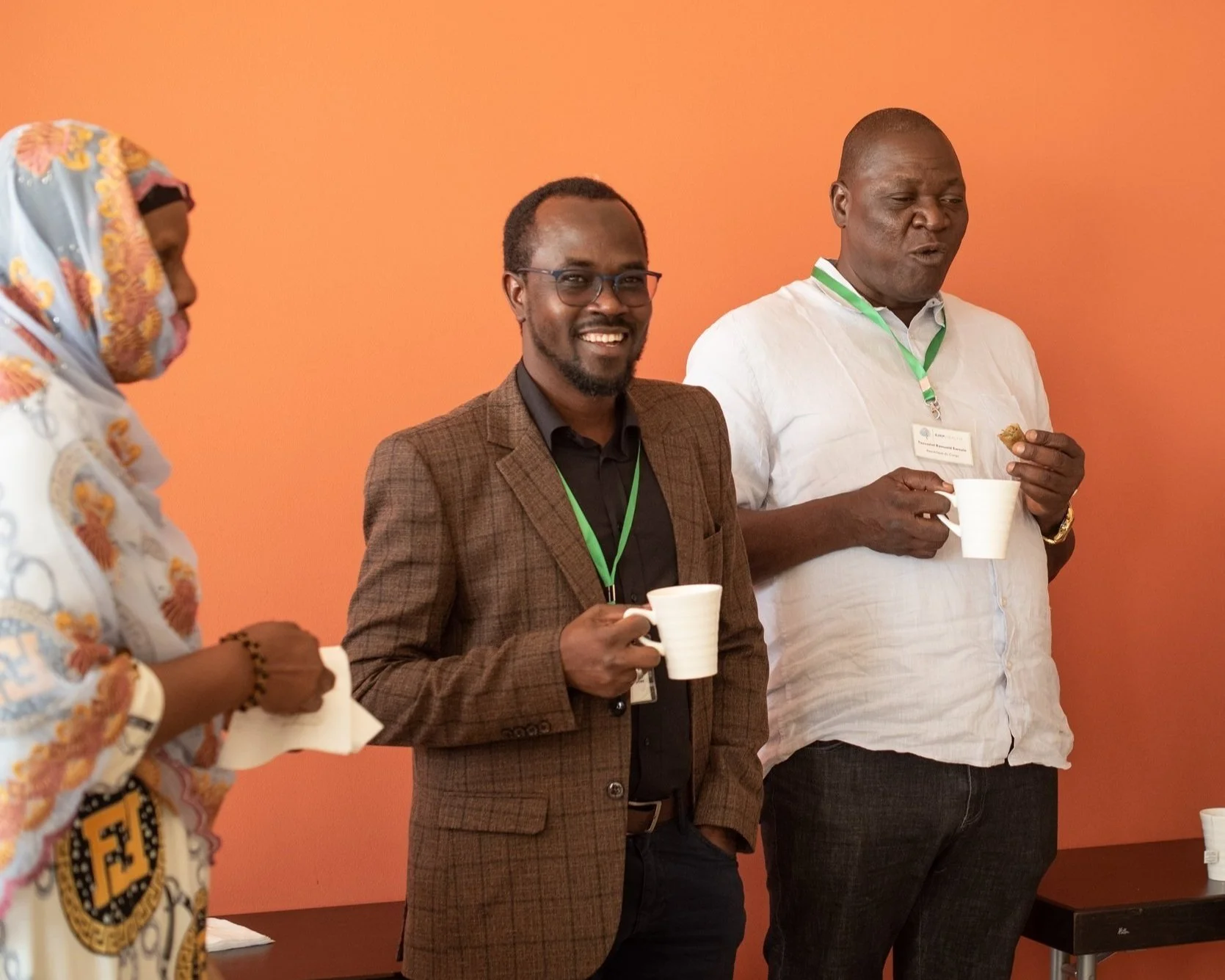Chad charts a new course for malaria control: Q&A with Dr Mahamat Selah Diar
From successfully implementing its seasonal malaria chemoprevention and long-lasting insecticidal net campaigns to launching the R21 malaria vaccine and administering 157,900 doses to the most vulnerable, Chad’s National Malaria Control Programme (NMCP) has charted a new course for malaria management. Amp Health has partnered with the NMCP since April 2022, and a Management Partner, Amadou Sy, was embedded within the team until December 2023. During Amp Health’s 2024 French Leadership Lab, we sat down with Dr. Mahamat Saleh Diar, Coordinator of Chad’s NMCP, to reflect on his team’s experience with Amp.
Amp Health: Please explain how the collaboration with Amp Health started and how it evolved.
Dr Diar: At the beginning, we were looking for technical support because we were more accustomed to having Technical Assistants. We had worked with advisors who were either doctors or pharmacists, so we wanted to continue in that direction. I remember that during our first meeting with Amp, we insisted a lot on this point. However, they explained to us that their approach was based on leadership and management strengthening. At first, this was not very clear to us, but over time, through discussions, we began to understand it better.
Amp Health: How did this transition happen and what impact did it have?
They explained the principle to us very well. Leadership was not the type of investment we were used to; we had always focused on technical aspects. However, we later realised that this approach enabled each team member to improve, become more aware of their role, and foster better collaboration within the team. This changed the team dynamics, bringing more motivation. Thanks to the work of the Management Partner and the various training sessions we received, we conducted evaluations before and after the intervention and noticed significant improvements within the team.
Amp Health: What changes did you observe, within your team and personally?
The changes I noticed within my team were numerous. I saw greater proactivity, increased motivation, and a stronger sense of responsibility – qualities that every leader seeks. There was also greater self-assertion and accountability among team members.
Personally, as a manager, I was used to handling everything – from planning to activity monitoring. Amp Health’s support allowed me to delegate more tasks. For example, I have managed multiple mosquito net distribution campaigns, but the 2023 campaign was the most challenging because of the digitalisation process. However, it was also the campaign where I had the most breathing space compared to previous ones because I could rely on my team members to do the work and report back to me.
This really relieved me and allowed me to focus on more strategic aspects, such as resource mobilisation. For the first time in Chad, we managed to secure additional funding beyond our traditional donors, such as the Global Fund. We obtained support from the Alliance for Malaria Prevention, who provided us with over six million mosquito nets, valued at $18 million. Moreover, for the first time, we carried out a fully digital campaign. As a result, we received a leadership award from the Alliance for Malaria Prevention.
Amp Health: Looking back, what differences do you see between having a Management Partner on your team versus a Technical Assistant?
A Technical Assistant focuses primarily on technical aspects and specific areas of expertise. In contrast, the Management Partner works on leadership, collaboration, and team cohesion – elements that foster personal and professional growth. The Management Partner provides daily feedback, advice, and alternative ways of doing things, walking alongside the team. This is much broader than the role of a Technical Assistant, who is limited to a specific technical function such as monitoring and evaluation, logistics, or case management.
The Management Partner also supports all levels, from junior staff to the coordinator, including drivers and department heads, because everyone has a role to play and must demonstrate leadership within their respective responsibilities. So, having a Management Partner is much broader than having a technician whose tasks are strictly defined within a specific area of expertise.
Amp Health: One success story you often mention is how you travelled while feeling confident that your team could manage in your absence. Could you briefly share this story?
In 2023, I was pursuing a Master’s degree and had to be away for several months. Before leaving, I had to seek approval from my superiors, which was often difficult for managers since long-term absences are usually not allowed.
When I first spoke with my superior, his immediate concern was, "Who will handle your responsibilities while you’re away?" That was my opportunity to explain that I had a competent team I could rely on. I successfully convinced him to grant me permission.
Even I was surprised to see the team operate smoothly during my three-month absence, without major issues in planning, implementation, or execution of tasks. While I stayed in touch occasionally to discuss certain matters, the team demonstrated strong commitment and resilience in overcoming challenges.
When I returned, I reflected on how the team had continued to function efficiently without me. This was the result of long-term investment, training, and, most importantly, applying the tools we had learned, such as task delegation. Ultimately, I truly appreciated seeing my team operate independently. It allowed me to step back, focus on strategic thinking, and be more creative. As managers, we are often so overwhelmed that it becomes difficult to take a step back and innovate. But having a reliable team to delegate to enables us to explore new perspectives, which I found extremely valuable.
Amp Health: Your Management Partner left the team in December 2023. How is your team functioning now?
Yes, the Management Partner completed their mission in Chad, and we were quite apprehensive about this transition. We strongly believe Chad is one of Amp Health’s success stories, and we want to preserve our achievements. We do not want the team dynamic to change after the Management Parter’s departure.
Amp continues to support us remotely through check-ins, monitoring how the team is evolving. This gradual withdrawal and continued remote follow-up helped reinforce the good practices we have developed, ensuring that we do not regress.
The NMCP’s ongoing success is testament to their hard work and commitment to leadership and management strengthening, honed during the partnership period.




